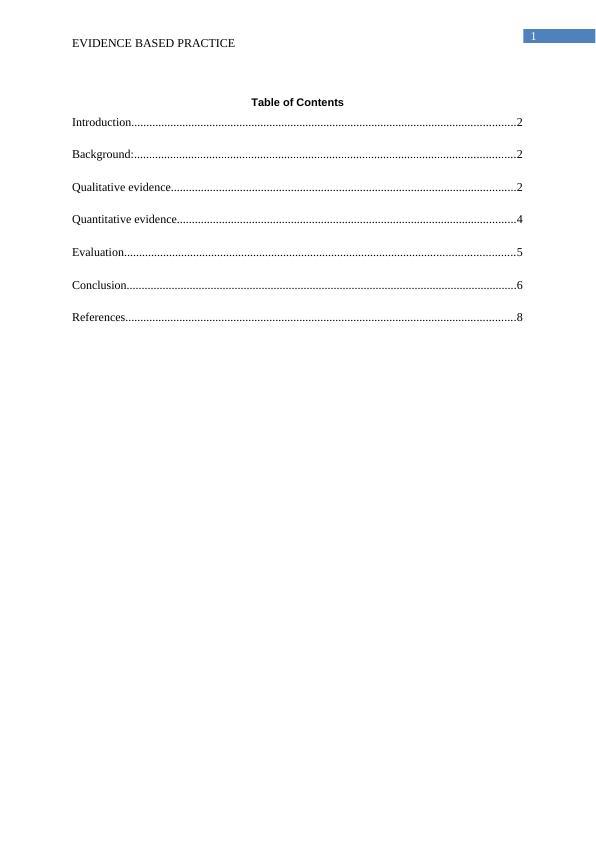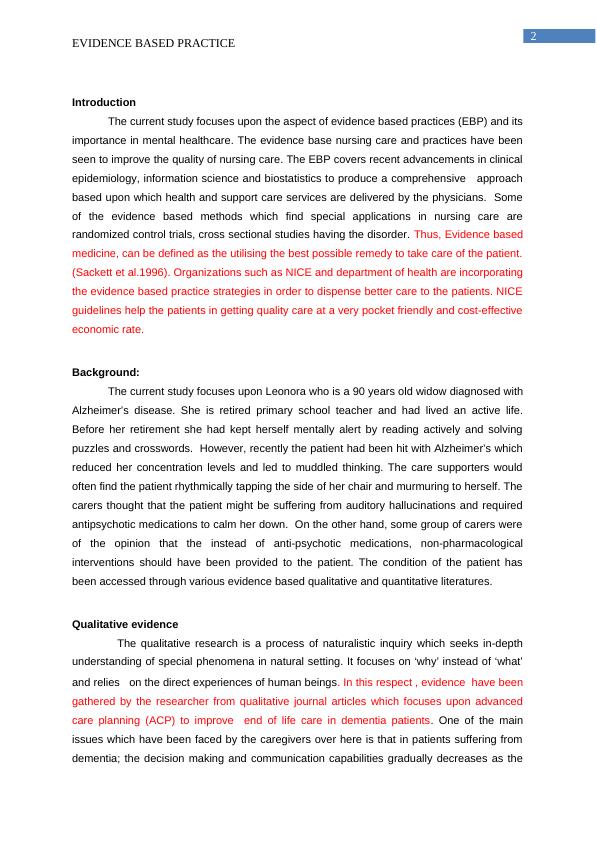Evidence Based Practice in Mental Healthcare: A Case Study of Alzheimer's Disease
Explore a case patient/client situation using three key pieces of evidence, one from an evaluation session and two from self-searched sources (one qualitative and one quantitative), all related to the themed days in the module.
10 Pages3601 Words413 Views
Added on 2023-06-10
About This Document
This study focuses on evidence based practices (EBP) and its importance in mental healthcare, with a case study of Alzheimer's disease. Qualitative and quantitative evidence is analyzed to evaluate different intervention programs for the well-being and improvement of people suffering from dementia.
Evidence Based Practice in Mental Healthcare: A Case Study of Alzheimer's Disease
Explore a case patient/client situation using three key pieces of evidence, one from an evaluation session and two from self-searched sources (one qualitative and one quantitative), all related to the themed days in the module.
Added on 2023-06-10
ShareRelated Documents
End of preview
Want to access all the pages? Upload your documents or become a member.
Nursing Assignment Vascular Dementia
|8
|2122
|148
Mental Health - Dementia Case Study Assignment
|10
|3074
|29
Perception of End-of-Life Dementia Care by Family Members: A Summary Table
|3
|748
|100
NRSG370 Assessment: Case Study – Aged Care
|10
|2745
|38
Developing Professional Values in Mental Health Nursing
|11
|3326
|87
Integrated Nursing Care For Adults with Complex needs
|8
|2650
|89



